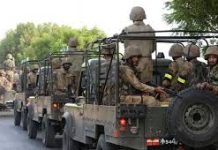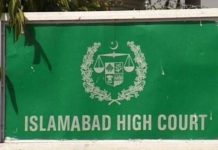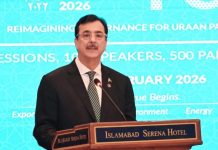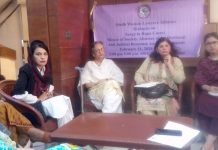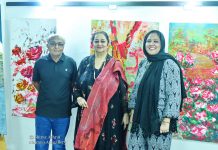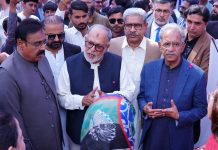ISLAMABAD: we mark the solemn anniversary of an event that forever altered the course of Junagadh’s history — the signing of the Instrument of Accession by my grandfather, Nawab Mahabat Khanji, in 1947. This was not merely a political move but a profoundactofexercisingsovereigntyandself-determinationatacriticaljuncturewhentheIndian subcontinent was undergoing partition.
NawabMahabatKhanji’sdecisiontoaccedetoPakistanwasrootedintheconstitutionalandlegal framework established by the British during their withdrawal from India. Junagadh, a princely statewithaMuslimruler,hadeveryrighttochooseitsfuture.Mygrandfather,inhiswisdomand foresight, saw the alignment with Pakistan as a natural step given the cultural and religious ties between Junagadh and the Muslim-majority areas that were to become part of Pakistan.
However,asweallknow,thisdecisionwasmetwithresistance,andJunagadh’sstorybecameone of conflict and struggle, as Indian forces moved in soon after the accession. Despite these challenges, the signing of the Instrument of Accession remains a powerful symbol of our commitment to the principles of justice, equality, and the right to self-determination.
As the granddaughter of Nawab Mahabat Khanji, it is my duty to ensure that the legacy of Junagadhandthevisionofmygrandfatherarerememberedandhonored.Wecontinuetostandfor therecognitionofJunagadh’srightfulplaceandfortheprinciplesthatmygrandfatherstoodfor— the right of people to determine their destiny, free from external coercion.
On this day, I encourage everyone to reflect on the significance of this event and the broader strugglesforautonomyandjusticethatcontinueacrosstheworld.Letusrememberthecourageit took to make that fateful decision and the sacrifices made in its aftermath.
MayJunagadh’sstoryinspirefuturegenerationstostandforjustice,self-determination,andpeace.
Withsolemn remembranceand hopefor ajust future,


